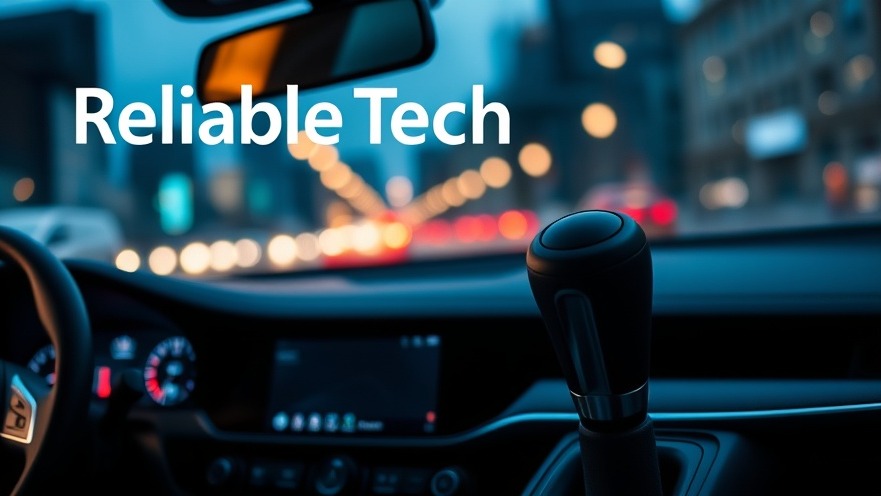
Understanding the Reliability of CVT Transmissions
Continuously Variable Transmissions (CVTs) have become a common feature in modern cars, but their reliability varies significantly among different manufacturers. This stems from varying engineering practices and quality standards within the industry. Nissan, for example, faces critical issues with their CVTs, as they attract numerous complaints about their durability. Known for their failures at low mileage, Nissan’s CVT technology has caused substantial dissatisfaction among drivers, leading to costly replacements averaging between $7,000 and $8,000.
In 'Are CVT Transmissions Reliable? Here Is The Truth,' the discussion dives into the reliability of CVTs across various car brands, exploring key insights that sparked deeper analysis on our end.
Are All CVTs Created Equal?
While Nissan has gained a negative reputation regarding its CVTs, other brands like Toyota and Subaru actually produce reliable versions. Toyota’s CVT, often found in models such as the Corolla and Corolla Cross, is well-engineered and generally experiences few failures. Subaru has also made significant improvements to their CVTs since their introduction, solidifying their place as a dependable choice in the current market.
ECVTs: A Rhythmic Heart for Hybrid Vehicles
Hybrid vehicles introduce an innovative take on CVTs through Electronically Controlled Continuously Variable Transmissions (ECVTs). Unlike traditional CVTs, ECVTs utilize a planetary gear set design, inherently making them more robust and less prone to failure. Models from Toyota and Honda lead the pack in this category, showcasing durability that can outlast conventional gas engine counterparts. This design not only diminishes the likelihood of transmission breakage, but it also represents a crucial selling point for potential hybrid buyers.
Purchasing Considerations: What to Know Before You Buy
When considering the purchase of a vehicle equipped with a CVT, it's essential to do your homework. Researching models known for reliability can save consumers both heartache and expenses down the line. Opt for reputable makes, and don’t shy away from hybrid models that include ECVTs for a safer bet regarding long-term maintenance. It’s also advisable to compare different models and their corresponding CVT performance reviews, keeping in mind that your choice can greatly influence the overall vehicle experience.
Why Quality Matters in Your Next Vehicle Purchase
Deciding on a vehicle doesn't purely rest on aesthetics or upfront cost. It's about understanding the vehicle's reliability, overall maintenance costs, and resale value. Investing in a reputable brand like Toyota or Honda, known for their reliable transmissions, will typically yield better long-term financial results compared to lower-quality options.
Final Thoughts
In summary, not all CVTs are unreliable, but the brand does make a significant difference. For consumers looking to minimize repair costs and maximize performance, it is crucial to focus on brands with a good track record. Whether you're shopping for a traditional CVT or considering the reliable choice offered by hybrid vehicles with ECVTs, informed decisions ultimately lead to more satisfying ownership experiences.
 Add Row
Add Row  Add
Add 




Write A Comment